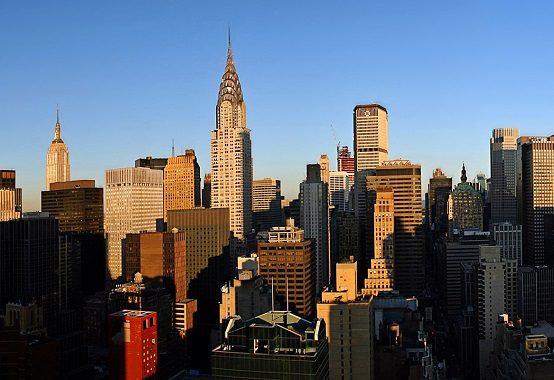Words on the Street

“Words on the Street” highlights the best New Urbs content we’ve encountered this week:
The City That Embraced Its Decline | Alexia Fernández Campbell, The Atlantic
Youngstown, Ohio, created quite a stir a decade ago when it unveiled a novel plan for the city: It would stop trying to return to its glory days as a city of 170,000 people and instead embrace the idea that maybe smaller is better. The Youngstown 2010 plan reoriented the former steel-mill town toward providing services to the neighborhoods with the most people, converting abandoned land into green space, and supporting the burgeoning healthcare industry. In doing so, it hoped to keep the remaining 66,000 people from leaving. Since unveiling the plan in 2005, the city has lost only about 1,000 people.
How a Century-Old Zoning Law Shaped the Manhattan Skyline | Stephen Eide, Next City
This month marks the 100th anniversary of New York’s 1916 zoning law, a landmark event in the history of American urbanism and architecture. The law imposed regulations on the use and height of buildings, responding to widespread concern that early 20th-century New York was becoming too dense too quickly. During the preceding decades, skyscrapers had proliferated, creating “canyons” of darkness in lower Manhattan. The solution was the setback: After a skyscraper rose to a certain point, its façade had to be pushed back, to let in the sun and keep height in a certain proportion with street width.
True-ish Grit | David A. Banks, Real Life
Then something happened that was both strange and strangely predictable: Trojan Hardware went from being a moribund seller of commodities to a fetishized commodity itself, a design motif for the new businesses that opened in its former storefronts: a microbrewery, an exotic-plants retailer, and a hardware-store-themed cocktail bar called The Shop, with chair rails made of salvaged Trojan Hardware yardsticks and many other Trojan Hardware relics adorning the walls. Each of these new businesses trades on the air of rootedness that Trojan Hardware still supplies, the aura of organic street life that the ghost of a longstanding neighborhood establishment affords.
Books in the Basement | Nicole Gelinas, City Journal
I am writing this essay from the basement of the Baccarat Hotel, the awkward 605-foot crystal-and-marble confection on West 53rd Street that opened last year. The Baccarat, which is owned by a Chinese insurance company, made news in December when two prostitutes allegedly stole a $600,000 watch from a drunken john. Why am I here? In one of the worst decisions made by a local public institution in decades, the New York Public Library has squirreled away its newest branch in the basement of this luxury tower.
Amazon Has Swallowed Downtown Seattle | Spencer Soper & Peter Robison, Bloomberg
Over the years, founder and Chief Executive Officer Jeff Bezos has made clear his disdain for the free lunches, massages and other perks commonplace in the suburban enclaves of Google, Apple and Facebook. His big advantage in the amenities arms race is a commitment to preserving an urban campus, no matter how big his company gets.
Comments